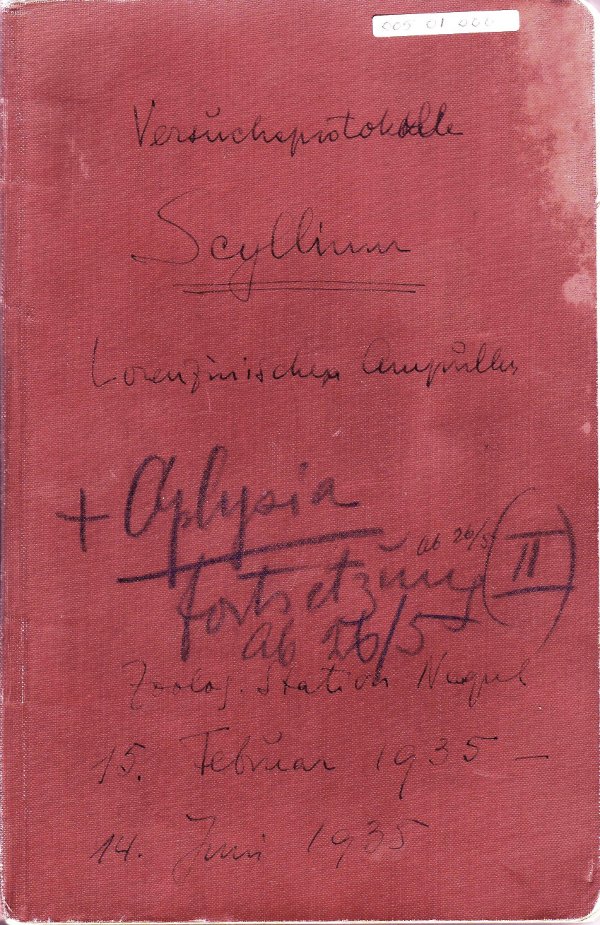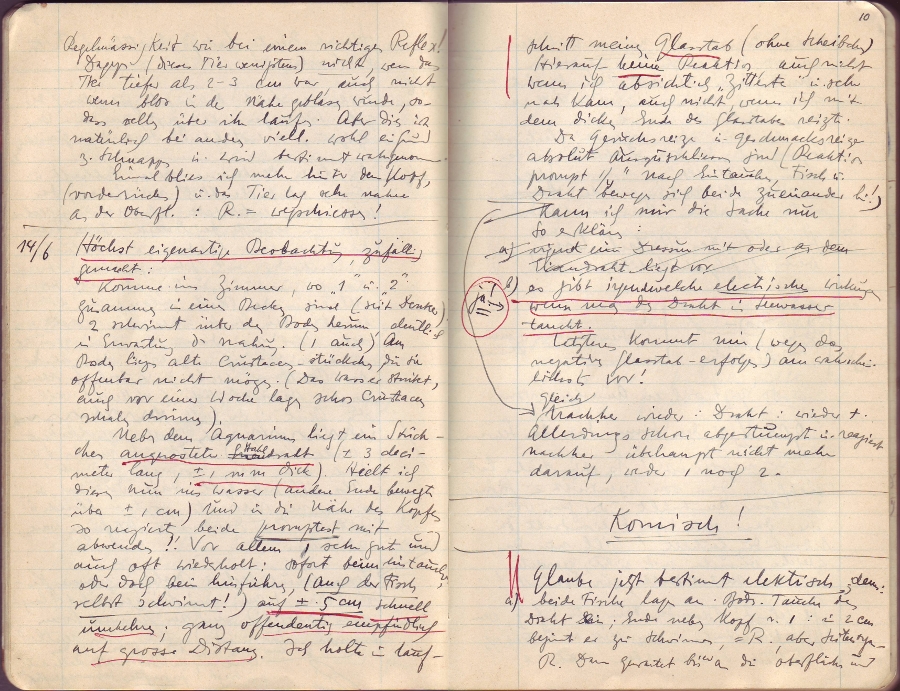Stichting De Traditie -
Cultural
Heritage



Utrecht - Science
Comparative Physiology - Dijkgraaf's Observation

In 1935, Sven Dijkgraaf visited the Aquarium Neapolitanum, to investigate the role of the lateral line system, especially the role of the ampullae of Lorenzini in locating food. To disable the role of the visual system he blinded dogfish one- or two-sided. In that way he was sure that the sharks could not visually detect a piece of food he offered, or an approaching object. The approaching object was a glass rod, which could be manually placed in the vicinity of the shark, whether or not provided with a piece of fish. The most striking note in his observation protocols is the reluctance of the sharks to eat bits of food when thrown into the water. Only at night, in the dark, the pieces of food seemed to disappear. When, due to a broken glass rod, one day food was offered on a piece of rusty iron wire, the animals turned their heads away, something they did not do when the food was served on a glass rod. Dijkgraaf might have guessed that this reaction could be caused by the electrical corrosion currents from the piece of wire, as had already been discovered by Parker and Van Heusen for catfish in 1917, but he attributed this reaction to leakage current of the mains. That sharks could perceive electrical currents with a specially tuned sensory system, the ampullae of Lorenzini, remained undisclosed until 1960. The discovery of the function of the tuberous organs of Gymnarchus by Lissmann (1958), and the electrophysiological recording of the activity of the nerves of the ampullae of Lorenzini by Murray (1962), made scientists accept the existence of sensory organs specialized in the detection of natural electrical fields in water.

20200116